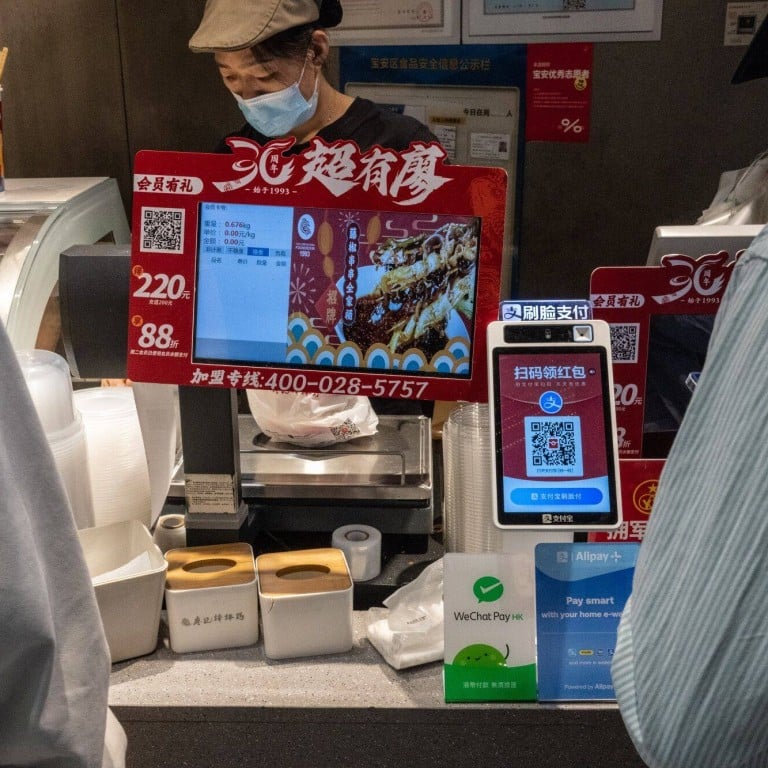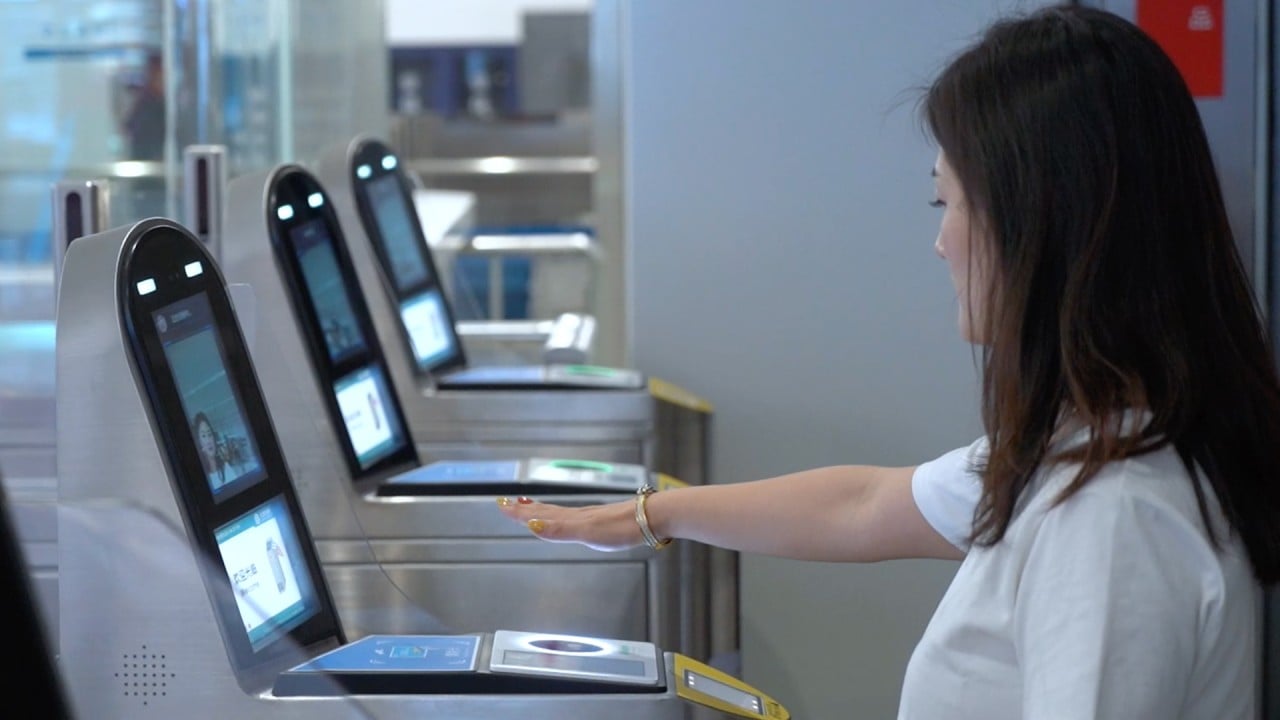
China pushing to break down payment barriers for visitors, with 90,000 overseas buyers set to flock to Canton Fair
- Tackling payment issues is a small but important part of Beijing’s broader efforts to bring down barriers for foreigners in China
- Preregistration figures for the 135th edition of the Canton Fair show 93,000 buyers from 215 countries and regions will attend
With foreigners still struggling to obtain change for cash transactions, or even pay for museum tickets electronically, officials are seeking to make life easier for the 93,000 buyers from over 200 countries and regions that will attend the upcoming edition of China’s largest trade fair.
Tackling payment issues of foreign traders is a small, but important part of Beijing’s broader efforts to bring down barriers for foreigners in a bid to attract global tourists and businesses, as it is closely related to China’s trade prospects and post-pandemic rebound amid a set of economic headwinds.
China’s payment vow an ‘easy but marginal win’ as overseas concerns remain
“We will set foreign currency exchange machines and mobile [point of sale] terminals to cater to the diverse payment needs of exhibitors and buyers, including currency exchange, digital payments, card transactions, mobile payments and cash payments,” commerce vice-minister Wang Shouwen said earlier this week ahead of the 135th edition of the fair, which begins on April 15.
Wang said cash accounted for over 50 per cent of payments by overseas buyers in Guangzhou, followed by 33 per cent for mobile payments and 15 per cent for bank cards.
He confirmed the semi-annual fair had received preregistration by 93,000 buyers from 215 countries and regions, with over 220 leading enterprises also confirming delegations.
“These figures surpass the scale of previous sessions for the same period,” he added.
Some services, such as receiving money from a friend, required me to have a Chinese bank card, which is not feasible in my case
French tourist Raphael Granier said some stores had been unable to provide enough change for large bank notes during his recent visit to southwest China.
“I didn’t get WeChat Pay,” said Granier, who added some stores were unable to provide enough change during his recent visit to southwest China.
“Some services, such as receiving money from a friend, required me to have a Chinese bank card, which is not feasible in my case.”
Yan Fang, deputy director of the Payment and Settlement Department at China’s central bank, said commercial banks in Guangzhou have introduced a “change bag” cash service – totalling 200 yuan (US$27.6) to 500 yuan – which it would promote in sectors like taxi services to facilitate cash transactions.
Boon for expats, visitors as China approves Mastercard’s card clearing licence
Yan said over 900,000 inbound travellers used mobile payments during the first two months of the year, producing over 20 million transactions totalling more than 3 billion yuan (US$415 million) in value.
“We aim to enhance payment convenience to better serve the Canton Fair, and also to meet the various needs of foreign visitors in China, such as tourism and consumption,” Yan said on Monday.
“Mobile payments are one of China’s strengths, with a current penetration rate of 86 per cent.”
Not exactly e-payment per se, but some instances require a China phone number, and don’t accept foreign numbers
Foreigners who prefer mobile payments could link their overseas bank cards with platforms such as Alipay or WeChat Pay, while overseas cards are accepted at airports, hotels and shopping malls in some key cities and areas, Yan said.
She added the People’s Bank of China (PBOC) was also working on optimising account and digital yuan services to offer a wide range of payment choices for foreigners.
“Not exactly e-payment per se, but some instances require a China phone number, and don’t accept foreign numbers,” said Singaporean Limonium Sua following a recent trip to the southwestern province of Sichuan.
Sua said he failed to buy a museum ticket online as he did not have a Chinese phone number.
Former PBOC governor Yi Gang said during a forum at Peking University Shenzhen last month that the “unprecedented success of mobile payment” in China was partly due to the lack of widespread adoption of cheques and credit card payments.
“In contrast, payment services of US residents have long been diversified, with cheque and credit card payments being very convenient, so it would be difficult to change their payment habits,” Yi said.
He also raised concerns about privacy protection in digital finance services, calling it a “persistent challenge”.
“At the legislative level, China’s current provisions for protecting financial consumers’ privacy rights are fragmented, separately included in multiple laws and regulations, and lack coordination and systematic coherence,” he said.


